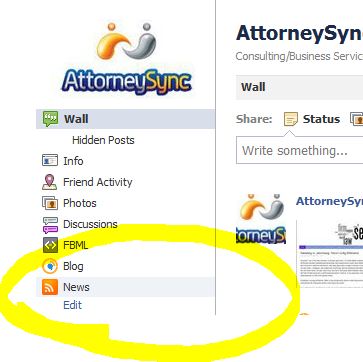 One of the most difficult tasks in legal internet marketing is motivating and showing attorneys how to write their firm’s blog. I have decided to create a recipe for blogging success.
One of the most difficult tasks in legal internet marketing is motivating and showing attorneys how to write their firm’s blog. I have decided to create a recipe for blogging success.
Step 1: Know your audience. Understand that each blog that you create has a target audience. Do some research and put some thought into it. If you’re a personal injury attorney in Duluth, MN writing about Mesothelioma, your most likely audience is going to be the taconite miners and their friends and family. Stop writing generic articles about premises liability or product liability. Speak towards your client’s needs. Instead of writing about faulty drugs, write about specific drug’s side effects. So for example, this blog will be targeted towards personal injury attorneys wanting to generate organic seo traffic through blogging.
Step 2: Be sure to value what the customer values most. Since our target market was defined earlier, I think we all know personal injury value above all else…money. I am kidding. Quality relevant cases without wasting time on irrelevant leads. Be sure to always have what your customer values most in mind when writing your blog. Each client is different but over the course of a law career trends will become apparent. It also helps to be unique and original in your topic selection and write about rare and uncommon topics where your competition is too slow or inept to respond to the market, or the market might be viewed as too small to warrant a blog post.
 Law Firm Web Strategy Blog
Law Firm Web Strategy Blog


 I spoke with a number of lawyers over the last several weeks that came to
I spoke with a number of lawyers over the last several weeks that came to  I talk with lawyers everyday that have websites they need help marketing. They want their websites to bring in more traffic, more leads, and more clients. When I ask how often they are updating their sites and what type of content they are producing, the other end of the line is usually met with silence. The fact is that in today’s online marketing universe, you need to produce new content for your website on a regular basis.
I talk with lawyers everyday that have websites they need help marketing. They want their websites to bring in more traffic, more leads, and more clients. When I ask how often they are updating their sites and what type of content they are producing, the other end of the line is usually met with silence. The fact is that in today’s online marketing universe, you need to produce new content for your website on a regular basis. Part of our jobs as web marketing consultants for law firms is to stay abreast of the changes that happen in our industry. In fact, what I believe separates the men from the boys is the ability for a company to understand not only how to leverage results with the way things currently are, but also being able to predict where things are going. Since search engine optimization is such an important part of any law firm’s web strategy, I wanted to discuss where I think search is headed and how this impacts your law firm.
Part of our jobs as web marketing consultants for law firms is to stay abreast of the changes that happen in our industry. In fact, what I believe separates the men from the boys is the ability for a company to understand not only how to leverage results with the way things currently are, but also being able to predict where things are going. Since search engine optimization is such an important part of any law firm’s web strategy, I wanted to discuss where I think search is headed and how this impacts your law firm.


 A component of any well developed law firm internet strategy should include the production and syndication of practice specific, professionally written content. Posting content directly to your website or blog should serve as the foundation of your strategy. However, taking advantage of syndication networks such as
A component of any well developed law firm internet strategy should include the production and syndication of practice specific, professionally written content. Posting content directly to your website or blog should serve as the foundation of your strategy. However, taking advantage of syndication networks such as